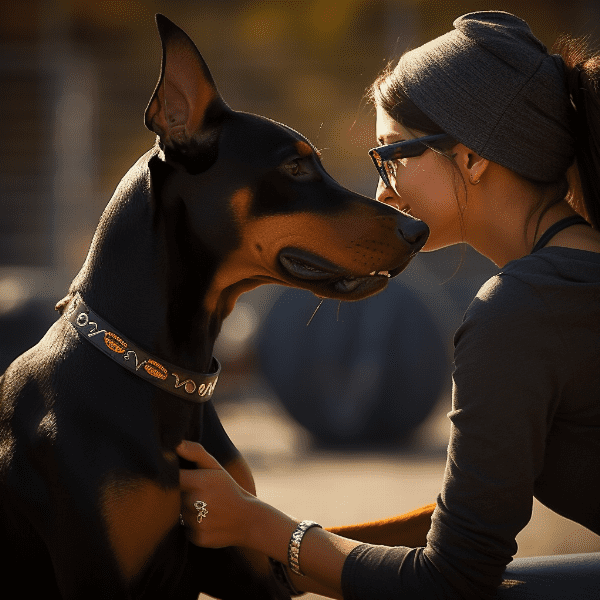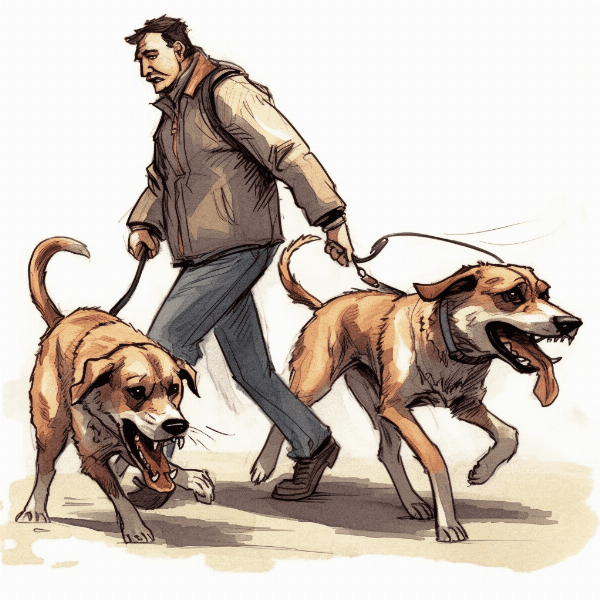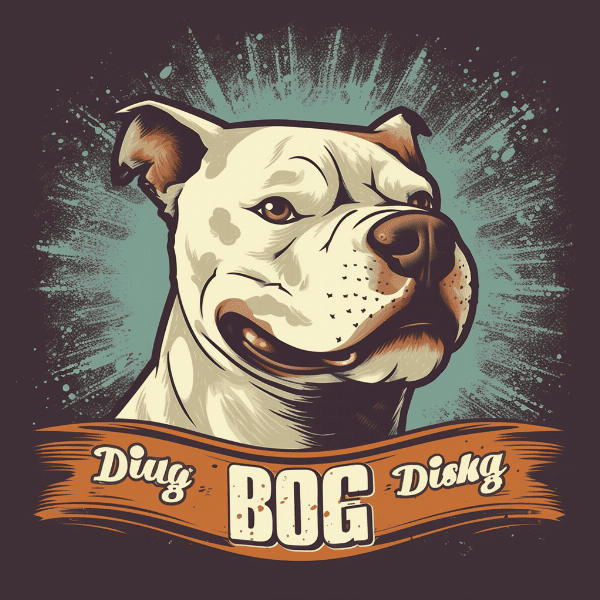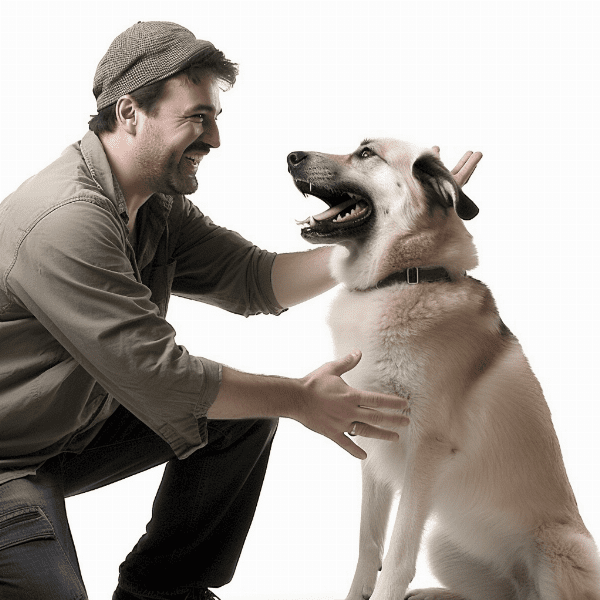Table of Contents
- Understanding Doberman Temperament
- Common Causes of Aggression in Dobermans
- Identifying Signs of Aggression in Dobermans
- Training Techniques for Aggressive Dobermans
- Behavioral Modification for Aggressive Dobermans
- Importance of Socialization for Dobermans
- Legal Considerations for Owners of Aggressive Dobermans
- Health Issues Associated with Aggressive Dobermans
- Managing Aggressive Behavior in Dobermans
- Preventing Aggressive Behavior in Dobermans
Understanding Doberman Temperament
Dobermans are known for their loyalty, intelligence, and protective instincts. They are energetic dogs that require plenty of exercise and mental stimulation to thrive. Understanding their temperament is crucial to building a strong bond with your furry friend.
Dominance
Dobermans are a breed with a dominant personality. They need a strong, confident leader to provide them with guidance and structure. Without proper leadership, they may try to take charge themselves, which can result in disobedience and aggression.
Trainability
Dobermans are highly trainable and eager to please. They respond well to positive reinforcement techniques such as treats, praise, and playtime. However, harsh training methods can lead to fear and aggression in Dobermans.
Protective Instincts
Dobermans are protective of their families and can be wary of strangers. While this makes them excellent guard dogs, it also means they need early socialization to avoid becoming aggressive towards unfamiliar people or animals.
Energy Levels
Dobermans have high energy levels and require regular exercise and mental stimulation. Without sufficient exercise, they can become bored and destructive. A lack of stimulation can also lead to anxiety, which can manifest as aggression in some Dobermans.
Sensitivity
Despite their tough exterior, Dobermans can be sensitive to their owner’s emotions. They are known to be very in tune with their human’s feelings and will often try to comfort them when they sense distress.
Understanding the unique temperament of Dobermans is key to raising a happy, healthy, and well-behaved pup. By providing proper leadership, training, and socialization, you can help your furry friend thrive and be a beloved member of your family.

Common Causes of Aggression in Dobermans
Lack of Socialization
One of the most common causes of aggression in Dobermans is a lack of socialization. If they do not receive adequate exposure to people, animals, and various environments during their critical socialization period, they may develop fear, anxiety, and aggression towards unfamiliar situations and beings.
Fear
Dobermans, like all dogs, can become aggressive when they are afraid. This can occur due to past traumatic experiences, a lack of socialization, or genetics. It’s essential to recognize and address any underlying fears that may be contributing to your Doberman’s aggressive behavior.
Territoriality
Dobermans have a strong sense of territory and can become protective of their home and family. This territorial behavior can escalate into aggression towards perceived intruders or strangers.
Lack of Exercise and Stimulation
A lack of exercise and mental stimulation can lead to boredom, frustration, and anxiety in Dobermans. These negative emotions can manifest as aggressive behavior towards people or other animals.
Understanding the common causes of aggression in Dobermans is essential to preventing or managing this behavior. By addressing any underlying issues and providing proper training and socialization, you can help your furry friend thrive and be a well-behaved companion.
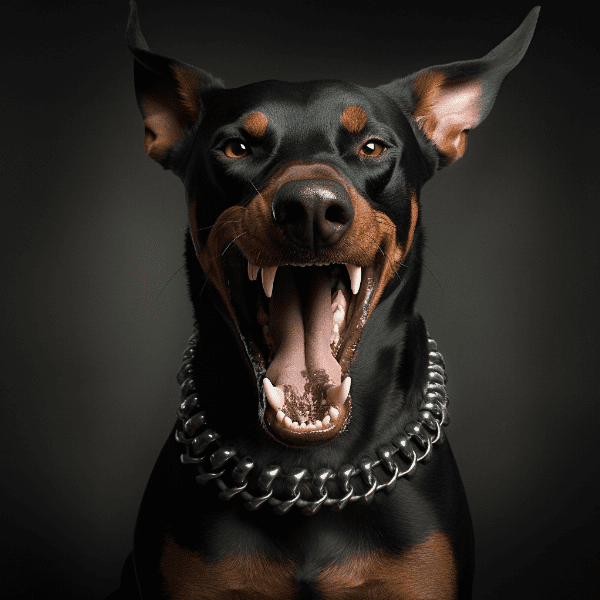
Identifying Signs of Aggression in Dobermans
Dobermans are generally friendly and well-behaved dogs, but they can exhibit aggressive behavior if they are not properly trained, socialized, or if there are underlying medical or psychological issues. Identifying the signs of aggression in Dobermans is crucial to preventing or managing this behavior.
Growling or Snarling
One of the most apparent signs of aggression in Dobermans is growling or snarling. This vocalization is a clear indication that your dog is feeling threatened or uncomfortable and is warning you to back off.
Biting or Nipping
Dobermans may also exhibit aggression by biting or nipping. This behavior is often a result of fear, anxiety, or frustration and can be dangerous if not addressed promptly.
Stiff Body Language
Dobermans with aggressive tendencies often exhibit a stiff, rigid posture. They may hold their head high, with their ears pointed forward and their tail held high and stiff. This body language is a clear indication that your Doberman is feeling tense and may be preparing to attack.
Raised Hackles
Raised hackles are a clear indication that your Doberman is feeling threatened or aggressive. Hackles are the fur on the back of your dog’s neck and can stand up when your dog is feeling fearful or threatened.
Excessive Barking
Dobermans may also exhibit aggressive behavior by barking excessively. This behavior is often a result of territoriality, anxiety, or frustration.
Identifying the signs of aggression in Dobermans is crucial to preventing or managing this behavior. If you notice any of the above signs in your Doberman, it’s essential to address them promptly by seeking the help of a professional trainer or behaviorist. With proper training and socialization, your Doberman can be a happy and well-behaved companion.

Training Techniques for Aggressive Dobermans
Training an Aggressive doberman can be challenging, but with the right techniques, it is possible to help your furry friend overcome their aggressive tendencies. Here are some effective training techniques for aggressive Dobermans.
Counter-Conditioning
Counter-conditioning is a training technique that involves exposing your Doberman to a stimulus that triggers their aggressive behavior and then rewarding them for remaining calm. This technique helps your dog associate the previously fear-inducing stimulus with a positive experience, thereby reducing their fear and anxiety.
Desensitization
Desensitization is a training technique that involves gradually exposing your Doberman to the stimulus that triggers their aggressive behavior in a controlled and safe manner. The goal of desensitization is to reduce your dog’s fear and anxiety towards the stimulus over time.
Avoiding Triggers
Another effective training technique for aggressive Dobermans is to avoid triggers that elicit aggressive behavior. For example, if your Doberman becomes aggressive towards other dogs, it may be best to avoid dog parks or other areas where other dogs are present until your dog is properly trained and socialized.
Professional Help
If your Doberman’s aggressive behavior is severe or persists despite your training efforts, seeking the help of a professional trainer or behaviorist may be necessary. These professionals can provide specialized training and guidance to help your Doberman overcome their aggression.
Training an aggressive Doberman requires patience, consistency, and a willingness to work with your furry friend. By using positive reinforcement, counter-conditioning, desensitization, and avoiding triggers, you can help your Doberman become a happy and well-behaved companion.

Behavioral Modification for Aggressive Dobermans
Behavioral modification is a process of changing an aggressive Doberman’s behavior through various techniques and approaches. Here are some effective behavioral modification techniques for aggressive Dobermans.
Identifying Triggers
Identifying the triggers that elicit your Doberman’s aggressive behavior is the first step in modifying their behavior. This may involve keeping a journal of your dog’s behavior or working with a professional trainer or behaviorist to identify the triggers.
Gradual Exposure
Once you have identified the triggers, the next step is to gradually expose your Doberman to the stimulus in a controlled and safe manner. This exposure should be done at a pace that is comfortable for your dog and allows them to remain calm.
Consistent Training
Consistent training is crucial in modifying your Doberman’s behavior. This may involve daily training sessions and ongoing reinforcement of positive behavior. Consistency helps your dog understand what is expected of them and reinforces positive behavior.
Positive Reinforcement
Positive reinforcement is a powerful tool in modifying your Doberman’s behavior. This involves rewarding your dog for good behavior with treats, praise, or playtime. Positive reinforcement helps to build trust and a strong bond between you and your furry friend.
Avoiding Punishment
Punishing your Doberman for their aggressive behavior can be counterproductive and may lead to further aggression. Instead, focus on positive reinforcement and avoiding triggers that elicit aggressive behavior.
Medication
In some cases, medication may be necessary to help modify your Doberman’s behavior. This may involve using anti-anxiety or anti-depressant medication to reduce fear and anxiety and promote relaxation.
Behavioral modification is a gradual process that requires patience and consistency. By identifying triggers, gradual exposure, consistent training, positive reinforcement, avoiding punishment, and medication if necessary, you can modify your Doberman’s behavior and help them become a happy and well-behaved companion.
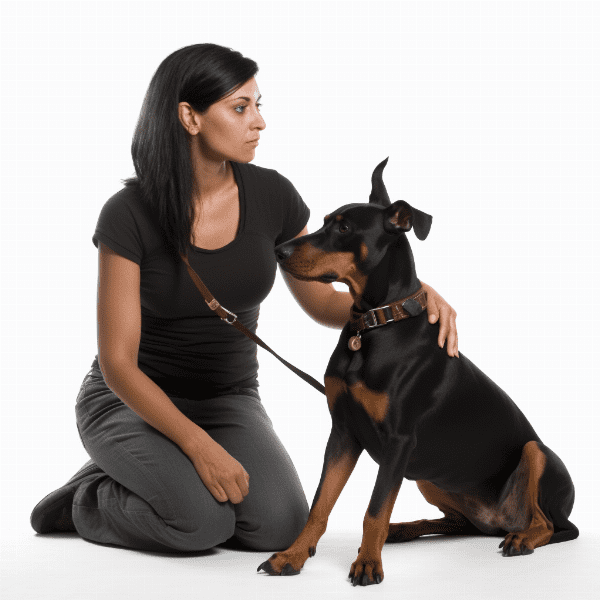
Importance of Socialization for Dobermans
Socialization is the process of exposing your Doberman to various people, animals, and environments in a controlled and positive manner. Socialization is crucial for Dobermans and plays a vital role in their overall behavior and temperament.
Preventing Aggression
Socialization is essential in preventing aggression in Dobermans. If they are not properly socialized, they may become fearful and aggressive towards unfamiliar people or animals. Proper socialization helps your Doberman feel more comfortable and confident in different situations, reducing their likelihood of aggression.
Building Confidence
Socialization also helps build your Doberman’s confidence. Exposure to various environments, people, and animals helps your dog learn new skills, become more adaptable, and build a sense of security in different situations.
Strengthening the Bond
Socialization is also an excellent opportunity to strengthen the bond between you and your Doberman. By exposing them to new experiences together and providing positive reinforcement, you can build trust and a deeper connection with your furry friend.
Better Quality of Life
Proper socialization also leads to a better quality of life for your Doberman. It allows them to enjoy new experiences, meet new people and animals, and adapt to new situations with ease. This can lead to a happier and healthier life for your furry friend.
Lifelong Benefits
The benefits of socialization last throughout your Doberman’s life. Proper socialization at a young age can help prevent aggression and build confidence, leading to a happy and well-behaved companion throughout their life.
In conclusion, socialization is a critical aspect of raising a healthy and well-behaved Doberman. Proper socialization helps prevent aggression, build confidence, strengthen the bond between you and your dog, and improve their quality of life. Socialization is a lifelong process that begins at a young age and continues throughout your dog’s life.

Legal Considerations for Owners of Aggressive Dobermans
Owning an aggressive Doberman comes with legal considerations that owners need to be aware of. It’s important to understand the legal implications of owning an aggressive dog to ensure the safety of others and avoid potential legal issues.
Liability for Injuries
As the owner of an aggressive Doberman, you are liable for any injuries or damages caused by your dog. This includes medical bills, property damage, and legal fees. It’s important to have liability insurance to cover these expenses in case of an incident.
Breed-Specific Legislation
Some cities and states have breed-specific legislation that restricts or bans certain breeds, including Dobermans. It’s important to research and understand the laws in your area to ensure that you are in compliance and avoid any legal issues.
Reporting Incidents
If your Doberman exhibits aggressive behavior towards people or other animals, it’s important to report the incidents to the authorities. This helps to protect others and can help prevent future incidents.
Training Requirements
Some cities or states may have training requirements for aggressive dogs, including Dobermans. It’s important to research and comply with these requirements to ensure the safety of others and avoid potential legal issues.
Consequences of Repeated Incidents
Repeated incidents of aggression can lead to more severe legal consequences, including fines, mandatory training, and even euthanasia of the dog. It’s crucial to address aggressive behavior promptly and effectively to prevent repeated incidents.
In conclusion, owning an aggressive Doberman comes with legal considerations that owners need to be aware of. Understanding liability for injuries, breed-specific legislation, reporting incidents, training requirements, and consequences of repeated incidents is crucial to ensure the safety of others and avoid potential legal issues. By addressing aggressive behavior promptly and effectively, you can prevent legal issues and ensure that your Doberman is a happy and well-behaved companion.

Health Issues Associated with Aggressive Dobermans
Hypothyroidism
Hypothyroidism is a condition in which the thyroid gland does not produce enough thyroid hormone. This condition can lead to a range of behavioral changes, including aggression. If your Doberman is exhibiting aggressive behavior, it’s important to have their thyroid hormone levels checked by a veterinarian.
Pain or Illness
Pain or illness can also lead to aggressive behavior in Dobermans. If your dog is in pain or has an underlying medical condition, they may become irritable, reactive, and defensive. Regular vet check-ups can help identify and address any underlying medical issues that may be causing your Doberman’s aggressive behavior.
Brain Tumors
In rare cases, aggressive behavior in Dobermans may be associated with brain tumors. These tumors can affect the dog’s behavior and can cause sudden and unexplained aggression. If your Doberman’s behavior suddenly changes or becomes increasingly aggressive, it’s important to have them evaluated by a veterinarian.
Behavioral Issues
Some Dobermans may exhibit aggressive behavior due to underlying behavioral issues, such as fear, anxiety, or lack of socialization. These issues can be addressed through training, behavior modification, and socialization.
Environmental Factors
Environmental factors, such as living in a stressful or chaotic environment, can also contribute to aggressive behavior in Dobermans. Addressing these environmental factors, such as reducing stressors in the home, can help reduce aggression in your Doberman.
In conclusion, aggressive behavior in Dobermans can sometimes be associated with underlying health issues. It’s important to be aware of these health issues and to address them promptly to prevent aggressive behavior. By addressing any underlying health issues, providing proper training and socialization, and creating a positive and stress-free environment, you can help your Doberman become a happy and well-behaved companion.
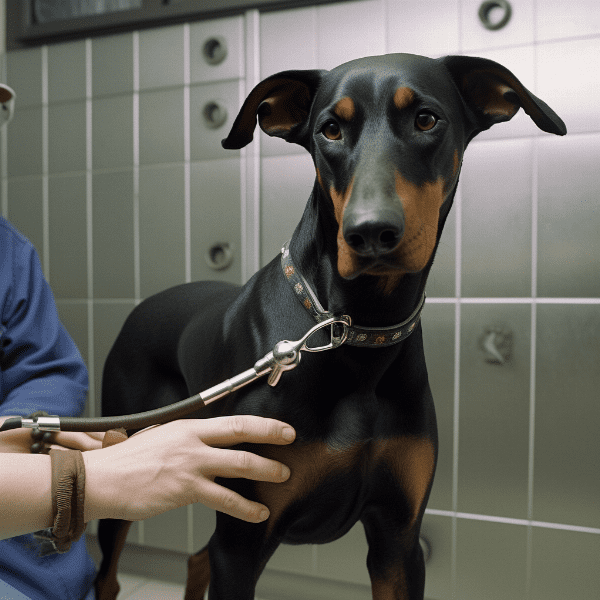
Managing Aggressive Behavior in Dobermans
Managing aggressive behavior in Dobermans requires a combination of preventative measures, training, and addressing underlying issues. Here are some effective ways to manage aggressive behavior in Dobermans.
Preventative Measures
Preventative measures are essential in managing aggressive behavior in Dobermans. This includes proper socialization, training, and addressing any underlying health issues. By providing a positive and stress-free environment and avoiding triggers that elicit aggression, you can prevent aggressive behavior before it starts.
Training and Behavioral Modification
Training and behavioral modification techniques can help manage aggressive behavior in Dobermans. Positive reinforcement training techniques, such as counter-conditioning and desensitization, can help reduce fear and anxiety and promote positive behavior. Seeking the help of a professional trainer or behaviorist can also be effective in managing aggressive behavior.
Medication
In some cases, medication may be necessary to manage aggressive behavior in Dobermans. This may include anti-anxiety or anti-depressant medication to reduce fear and anxiety and promote relaxation. It’s important to work with a veterinarian to determine the appropriate medication and dosage for your Doberman.
Consistency
Consistency is crucial in managing aggressive behavior in Dobermans. Consistent training, positive reinforcement, and management strategies help your Doberman understand what is expected of them and promote positive behavior.
Managing aggressive behavior in Dobermans requires a combination of preventative measures, training, and addressing underlying issues. By implementing preventative measures, providing proper training and behavioral modification techniques, using medication if necessary, implementing management strategies, and being consistent, you can manage your Doberman’s aggressive behavior and help them become a happy and well-behaved companion.
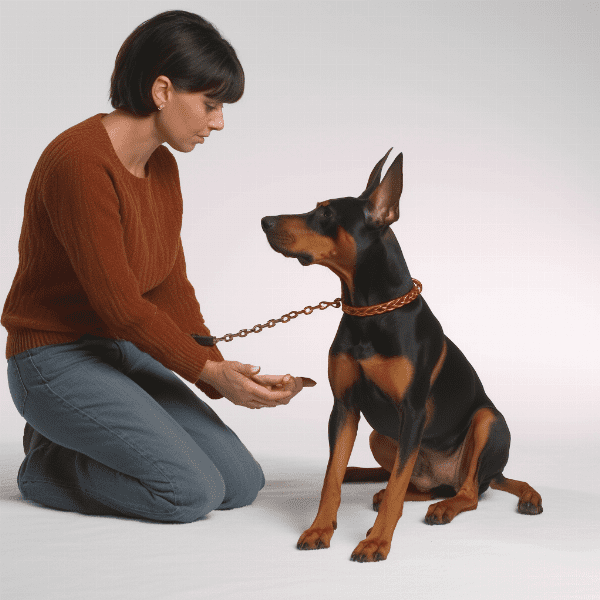
Preventing Aggressive Behavior in Dobermans
Preventing aggressive behavior in Dobermans is essential to ensure the safety of others and to maintain a healthy and happy relationship between you and your furry friend. Here are some effective ways to prevent aggressive behavior in Dobermans.
Early Socialization
Early socialization is crucial in preventing aggressive behavior in Dobermans. Exposing your puppy to a variety of people, animals, and environments in a controlled and positive manner can help build their confidence and reduce their likelihood of becoming aggressive.
Proper Training
Proper training is also essential in preventing aggressive behavior in Dobermans. Positive reinforcement training techniques, such as rewarding good behavior with treats or praise, can help your dog understand what is expected of them and promote positive behavior.
Addressing Health Issues
Addressing any underlying health issues can also help prevent aggressive behavior in Dobermans. Regular vet check-ups can help identify and address any medical issues that may be contributing to your dog’s aggressive behavior.
Providing a Positive Environment
Providing a positive environment for your Doberman is crucial in preventing aggressive behavior. This includes providing plenty of exercise, playtime, and mental stimulation, as well as creating a calm and stress-free living environment.
Management Strategies
Implementing management strategies can also be effective in preventing aggressive behavior in Dobermans. This may include using a leash and muzzle when in public, avoiding situations that may trigger aggressive behavior, and providing a safe space for your dog when visitors or strangers are present.
In conclusion, preventing aggressive behavior in Dobermans requires a combination of early socialization, proper training, addressing health issues, providing a positive environment, and implementing management strategies. By taking a proactive approach and providing your Doberman with the proper care and attention, you can help prevent aggressive behavior and enjoy a happy and healthy relationship with your furry friend.
